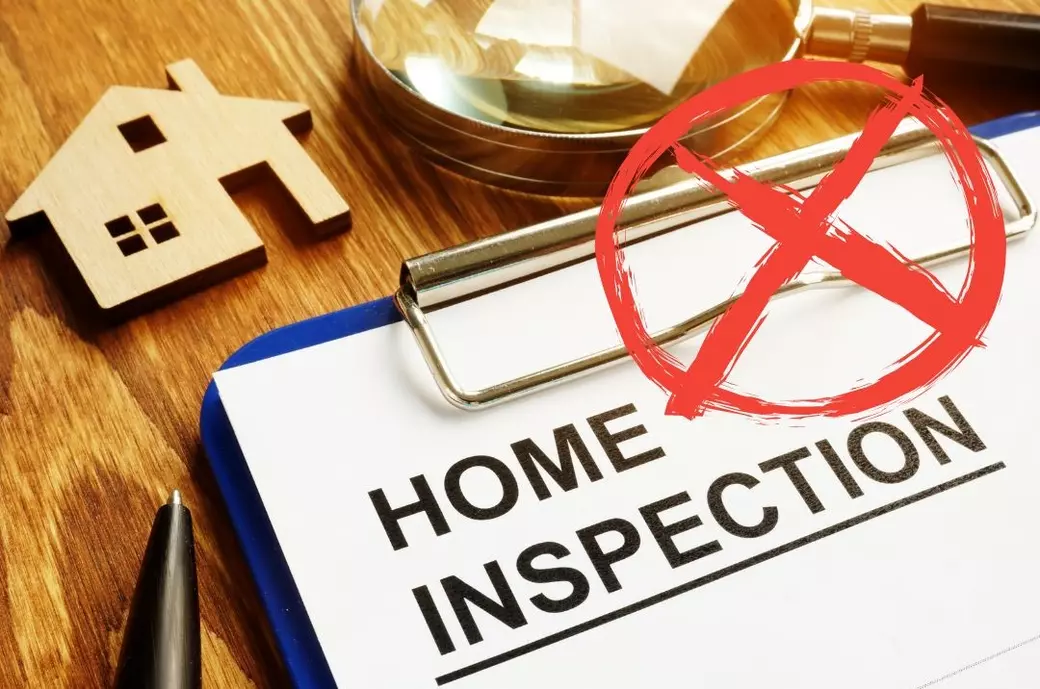Why Would a Seller Not Want a Home Inspection?

Why Would a Seller Not Want a Home Inspection?
A home inspection is a thorough examination of a property's condition, often conducted before the finalization of a real estate transaction. It evaluates structural integrity, electrical systems, plumbing, and more. Home inspections are crucial for buyers to understand potential issues and for negotiating repairs or price adjustments. However, some sellers might avoid them to prevent revealing costly repairs, maintain negotiating leverage, speed up the selling process, or because they believe the property is in excellent condition. Understanding these motivations can help buyers navigate the complexities of the real estate market more effectively.
Key Takeaways:
- Importance of Home Inspections: Home inspections are crucial for buyers to understand a property's condition and negotiate effectively.
- Reasons Sellers Avoid Inspections: Sellers may skip inspections to avoid repair costs, maintain negotiation leverage, expedite the selling process, or due to confidence in the property's condition.
- Potential Risks for Sellers: Avoiding inspections can expose sellers to legal and liability issues and increase the risk of buyer backouts or reduced buyer confidence.
- Market Dynamics: In hot real estate markets, sellers may bypass inspections without losing buyers, capitalizing on high demand and competitive offers.
- Alternatives and Mitigation Strategies: Sellers can mitigate risks by offering pre-listing inspections, providing detailed property disclosures, or offering home warranties to reassure buyers and streamline transactions.
Section 1: Understanding Home Inspections
A home inspection is a detailed assessment conducted by a certified inspector to evaluate a property's condition. The primary purpose is to identify any existing or potential issues. Common elements inspected include the structure, electrical systems, plumbing, roofing, and HVAC systems. Inspectors look for defects, safety concerns, and necessary repairs. Typical outcomes of a home inspection include a comprehensive report detailing the property's condition, recommendations for repairs, and insights into future maintenance needs. This information is invaluable for buyers to make informed decisions and for negotiating terms with sellers.
Section 2: Reasons Sellers Might Avoid Home Inspections
Avoiding Repair Cost
Sellers might avoid home inspections to sidestep potential high repair costs. Inspections often reveal significant issues, from structural problems to electrical or plumbing defects, which can be expensive to fix. Many sellers may not have the financial resources or willingness to undertake these repairs before selling. By bypassing the inspection process, sellers hope to avoid the need to lower their asking price or invest in costly renovations, thus preserving their profit margins and facilitating a quicker sale. This approach, however, carries risks that could impact the overall transaction.
Maintaining Negotiation Leverage
Home inspections can significantly shift the balance of power in price negotiations. When an inspection uncovers issues, buyers often use these findings to negotiate a lower purchase price or demand repairs. To maintain control over the selling price and avoid potential concessions, some sellers choose to forgo inspections. By avoiding this step, sellers aim to prevent buyers from gaining leverage, thereby keeping the asking price intact and minimizing negotiations. This strategy helps sellers preserve their desired profit margins and streamline the selling process, albeit with potential risks of undisclosed issues surfacing later.
Speeding Up the Selling Process
Home inspections can delay the selling process due to the time required for scheduling, conducting the inspection, and completing any necessary repairs. Sellers in a hurry to close the deal might prefer to skip this step to expedite the transaction. Avoiding an inspection can save time by eliminating potential hold-ups associated with fixing issues identified during the inspection. This approach appeals to sellers facing time constraints, such as those relocating for work or dealing with financial pressures, allowing for a faster and smoother sale. However, this strategy comes with the risk of undiscovered problems affecting the sale later.
Belief in Property Condition
Sellers confident in their property's condition might consider a home inspection unnecessary. If recent renovations or previous inspections have been completed, they may believe that any further inspections are redundant. This confidence often stems from the assurance that the property is well-maintained and free of significant issues. Consequently, sellers might skip the inspection to save time and avoid potential disruptions. However, while this belief can streamline the selling process, it can also lead to unforeseen problems if buyers discover overlooked issues later, potentially complicating the transaction and leading to renegotiations or legal disputes.
Market Conditions
In hot real estate markets with high demand, sellers might avoid inspections without losing buyers. When the market favors sellers, properties often receive multiple offers, sometimes above the asking price, creating a competitive environment. Buyers in such markets are more willing to waive inspections to secure a purchase quickly. This dynamic allows sellers to bypass the inspection process, reducing delays and avoiding potential repair negotiations. In a seller’s market, the urgency and competition among buyers often outweigh the perceived need for an inspection, streamlining the transaction and benefiting the seller's position.
Investor Buyers
Some buyers, particularly real estate investors, often purchase homes "as-is," eliminating the need for a home inspection. These investors typically have experience with property renovations and are willing to take on the risk of unseen issues. Sellers targeting such buyers may skip the inspection process to expedite the sale. This approach can be advantageous for sellers looking to sell quickly without the hassle of repairs or negotiations. By marketing the property to investors, sellers can streamline the transaction, appealing to buyers who are prepared to handle any potential problems independently.
Section 3: Potential Risks for Sellers Avoiding Inspections
Legal and Liability Issues
Avoiding home inspections can expose sellers to potential legal and liability issues. If undisclosed issues surface after the sale, buyers may pursue legal action against the seller for non-disclosure. Disclosure laws in real estate transactions mandate sellers to reveal known defects or problems with the property. By skipping inspections, sellers risk overlooking issues that could lead to costly legal battles. Ensuring full transparency and compliance with disclosure laws not only protects sellers from legal repercussions but also fosters trust with buyers, contributing to a smoother and more secure transaction process.
Buyer Backout
Skipping home inspections can increase the risk of buyers backing out if significant issues emerge post-sale. Discovering undisclosed problems after the transaction's completion may lead buyers to rescind their offers or pursue legal recourse. Additionally, such incidents can tarnish the seller's reputation in the real estate market, affecting future transactions and relationships with agents and buyers. Ensuring transparency through thorough inspections and proper disclosure of any known issues minimizes the likelihood of buyer backouts and preserves the seller's credibility, fostering positive experiences and long-term trust within the real estate community.
Reduced Buyer Confidence
Properties lacking inspections may face diminished buyer confidence. Without inspection reports, potential buyers may approach purchases with caution, concerned about undisclosed issues. This wariness can lead to fewer interested buyers or lower offers as buyers adjust for perceived risks. Sellers bypassing inspections risk alienating cautious buyers who prioritize thorough evaluations. To uphold buyer confidence and maximize interest, sellers could provide inspection reports or offer assurances regarding the property's condition through detailed disclosures. This proactive approach fosters transparency, assuring buyers and potentially yielding more competitive offers in the real estate market.
Section 4: Alternatives to Traditional Home Inspections
Pre-Listing Inspections
Conducting inspections before listing a property offers several benefits. It provides sellers with a comprehensive understanding of their property's condition, allowing them to address any issues proactively. Armed with this knowledge, sellers can price their homes more accurately, avoiding surprises during negotiations. Additionally, pre-listing inspections enhance marketing efforts by instilling confidence in potential buyers. Sellers can showcase inspection reports to highlight their property's quality and transparency. This transparency builds trust and may attract more serious buyers. Overall, pre-listing inspections streamline the selling process, minimize surprises, and contribute to a smoother transaction for both parties involved.
Providing Detailed Property Disclosures
Thorough property disclosures offer transparency and build trust with potential buyers. By documenting the property's condition comprehensively, sellers provide insight into its history, potential issues, and maintenance records. Detailed disclosures demonstrate honesty and integrity, reassuring buyers and fostering trust in the seller. This transparency also minimizes the risk of post-sale disputes and legal issues by ensuring that buyers are fully informed about the property they are purchasing. Overall, providing detailed disclosures is an essential part of the selling process, facilitating smoother transactions and fostering positive relationships between sellers and buyers.
Offering Home Warranties
Home warranties offer peace of mind to both buyers and sellers by providing coverage for potential issues post-sale. Sellers can offer warranties to reassure buyers about the property's condition, especially if they choose to forego inspections. These warranties typically cover major systems and appliances, easing concerns about unexpected repair costs. By offering warranties, sellers increase buyer confidence and mitigate the need for inspections, streamlining the transaction process. This added layer of protection enhances the property's appeal and demonstrates the seller's commitment to ensuring a positive buying experience, fostering trust and facilitating smoother negotiations.
Conclusion
In conclusion, the decision to forego a home inspection can be influenced by various factors, including financial considerations, market dynamics, and seller confidence in the property's condition. While skipping inspections may expedite the selling process and preserve seller leverage, it also carries risks such as legal liabilities and reduced buyer confidence. Alternatives like pre-listing inspections, detailed property disclosures, and offering home warranties can provide transparency and assurance to potential buyers, ultimately facilitating smoother transactions and fostering positive relationships between sellers and buyers. Understanding these motivations and exploring alternative solutions can help navigate the complexities of the real estate market effectively.
Categories
Recent Posts










